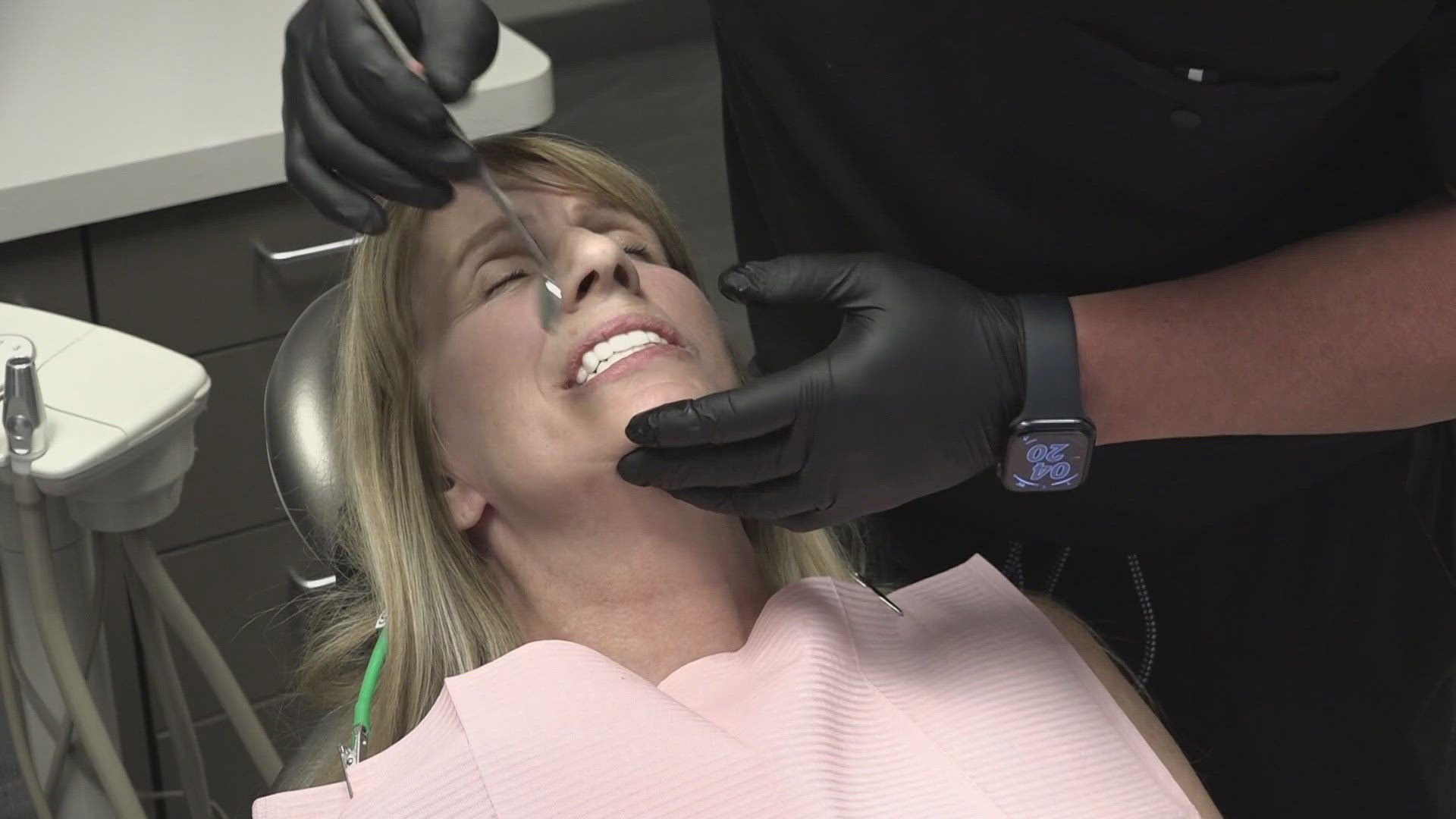MESA, Ariz. — An estimated 30 million people in the U.S. have encountered an eating disorder at some point in their life, and that number is on the rise. Experts, however, can't point to one single cause in the increase, rather they say it could be a combination of disconnection, loneliness and isolation.
As numbers continue to rise, data shows the disorder is affecting young teens and children – one Arizona woman said she had thoughts about her body image at 5 years old, and a new facility in Mesa is specifically working with young adolescents.
“On our National Eating Disorders Helpline, we've seen a 58% increase in helpline volume,” said Chelsea Kronengold, a spokesperson at the National Eating Disorders Association. "95% of the people with an eating disorder are between 12 and 25 years old."
'When I was five years old...'
Adopted at 2 days old in New Mexico and moving to Arizona in 1998, 48-year-old Jennifer James said she remembers experiencing thoughts about body image as young as 5 years old.
"I was reading food labels when I could learn to read," she said. "My eating disorder started a lot with body awareness and that my body was different than my adopted family, I didn't look like anybody."
James said she was diagnosed with anxiety and depression at a young age. But she wasn't diagnosed with an eating disorder until she was about 34 years old.
"I went through graduation, and they give you the coin and it's like, 'you're done!' and I was like 'Great! It's over," James said.
But James described recovery from an eating disorder as an ongoing journey, rather than an illness with a finish line.
"It's not a one-time recovery," she said. "It's a journey. It is something that's not perfect. It's something that requires a lot of vulnerability and a lot of bravery."
Risk factors
An eating disorder is a range of psychological disorders that can cause disturbances or changes to a person’s eating behaviors.
Disconnection, isolation, body image dissatisfaction, stigmas, traumatic events and anxiety disorder are just some of the risk factors that could lead to an eating disorder. However, there is not just one event, person, or risk factor that leads to the illness.
"I don't think that an eating disorder is something you can blame on one person," James said. "I think it's like a recipe. It's a combination of things that happen.”
'Social media, or the media in general, doesn't cause eating disorders'
Social media giant Facebook, which also owns Instagram, has been under fire in recent weeks for how its apps contribute to "destructive and lasting harm to many teens and children, especially to their mental health and wellbeing,” according to Sen. Richard Blumenthal, D-Conn., who heads the Senate Commerce subcommittee on consumer protection.
Social media algorithms, filters and the impact of posts on social media app users are something that continues to be discussed by lawmakers.
"Adolescents who already have a propensity towards feeling anxious or depressed gravitate toward either posting their own content or watching content that drives them to engage in unhealthy eating and exercise," said Sherri Hicks, the Center for Discovery Mesa Clinical Director.
"I have watched adolescents fight to recover from their eating disorder and body image struggles in treatment, just to go home and relapse after re-engaging in Instagram’s platform," Hicks said.
Although about 9% of the country's population has experienced an eating disorder, it is not tracked by the Centers for Disease Control and Prevention or the National Institute of Mental Health.
How is the disorder tracked?
Most statistics are formulated from research studies, helpline calls and surveys from other organizations like the National Eating Disorders Association.
“Eating disorder statistics are challenging because they're not required illnesses to report,” Kronengold explained. “The CDC and other censuses ask questions about people, including mental health, but they don't include questions about eating disorders.”
Although there are many risk factors to what could lead to an eating disorder, one common factor that thrived during the pandemic was isolation. “Eating disorders are also illnesses of disconnection,” Kronengold said.
Food security is another factor that has become more prevalent throughout the pandemic.
“There was a lot of concern about food security- whether that's people being concerned that they don't have enough food or wouldn't be able to get enough food, or they were stuck at home with too much food. People with challenging relationships with food and their body image, struggled initially then,” Kronengold said.
While multiple risk factors could lead to an eating disorder, an eating disorder is also not defined as just one specific act or diagnosis.
“A lot of people think that an eating disorder is just one behavior. 'It's just restricting.' 'It's just purging.' 'It's just overeating.' It's not. It's cyclical," James explained.
Adolescent-specific treatment center
Center for Discovery, the new facility in Mesa, is built for young adolescents, ages 10-17, who are experiencing behaviors of an eating disorder.
“This one that we are launching is a more acute care setting for eating disorders, and we go up to 24 beds,” said Sherri Hicks, the Center for Discovery Mesa Clinical director. “We will be able to serve patients who need nasal gastric tubes for feeding.”
Nasogastric feeding can provide additional nutrients and supplements to a patient during a time of rehabilitation.
Nationwide, the Center for Discovery organization has seen an influx in patients applying to outpatient programs.
“We have seen an increase for the Center of Discovery waitlist for up to 12 to 14 weeks for a patient to be able to receive care at a residential level across the United States,” Hicks said.
The helpline call increase can be shocking to some, but the NEDA believes the increase could also be considered a positive thing.
“A 58% increase is both good, and it's also not good, right? It's unfortunate that so many people are struggling during this time, but it's also great that they're reaching out for help,” said Kronengold.
NEDA’s website provides resources, information, helpline contacts and an online screening tool. The NEDA wants to clarify that the screening tool is used as an initial step to determining if it’s time to reach out for professional help, not an official diagnosis.
James participates in an eating disorder support group in the Valley as well as an adoptee group. She also writes with an international women's writing group every week.
James said she focuses on body positivity and teaches her 11-year-old daughter the importance of speaking words of kindness about herself.
"There are a lot of people out there working on getting better and there's a good, safe space and community out there," James explained. "You can find good people if you want to live a different life.”
“There are tools out there and I can build my own tool belt. I have choices,” James added.
For more information on the different types of eating disorders, risk factors, warning signs prevention tactics, visit NEDA’s website here.
If you or a loved one is struggling with an eating disorder, text or call the national helpline at 800-931-2237.
If you are experiencing a crisis, text ‘NEDA’ to 741741.



